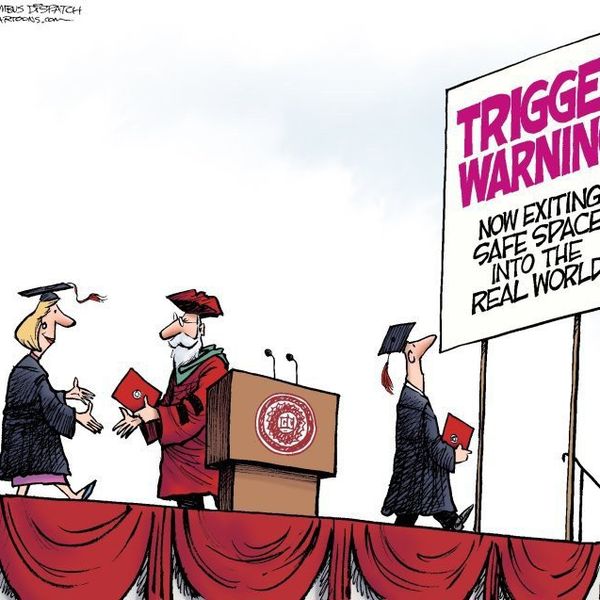Everything in our world seems to exist in tension today. I find that to be both a fantastic and terrifying place to be. On one hand, there has been a greater awareness across the country about issues of injustice around race, gender, religion, sexual orientation, sexual assault, access to education, and a variety of other current issues. On the other hand, retaliation from those whose power is being threatened by greater exposure to these issues has led to more dangerous responses such as Donald Trump, HB-2, and the most recent letter from the University of Chicago denouncing trigger warnings.
Let me start by saying that I am a huge advocate for encouraging difficult conversations and not hiding behind the idea that we can all “agree to disagree.” I make my case for this practice being harmful and threatening to oppressed communities in my blog post on the NASPA website, “Embracing Discomfort: Deconstructing the Myth of Opinion.” I do not believe conversations should end in the idea that everything is simply a matter of opinion and has no impact on larger social structures. With that, it seems that some of my views align with the University of Chicago.
However, the University of Chicago blew their cover when they named the concept of trigger-warnings and safe spaces as the problem. In that moment, it became clear that their goal was not to make it known that difficult dialogue was encouraged at their institution, but instead make it clear that they would not attempt, even minimally, to protect individuals or groups from harmful and hateful language. This denunciation of trigger warnings and safe spaces exists to elevate the voices who do not need them because of the immense privileges they are already afforded by their race, class, gender, sexual orientation, and other identity categories.
Trigger warnings do not exist to stifle conversation. They instead exist to mentally and emotionally prepare individuals for a conversation that may be harmful to them and provide them with the opportunity to actively participate in dialogue that may be difficult for them. By banning trigger warnings, you are essentially removing just one measure of care that would otherwise allow people to share their opinions. And so you continue to allow the dominant perspective to speak, as always. It is easy to regard someone as too sensitive when you are not personally impacted by the pain of systemic oppression on a daily basis.
We are in a time where we must decide what free speech means to us and how we choose to engage in difficult dialogue while fostering care and respect for each other. Safe spaces are hard to create, particularly around these difficult conversations, but that does not mean we should not strive to have a level of compassion for those we seek to talk with. And trigger warnings do not stop the conversation from happening, but instead provide the space for individuals to feel confident sharing their stories and perspectives. And that is how we breakdown dominant ideologies, though I don’t think that is what the University of Chicago was going for.




















